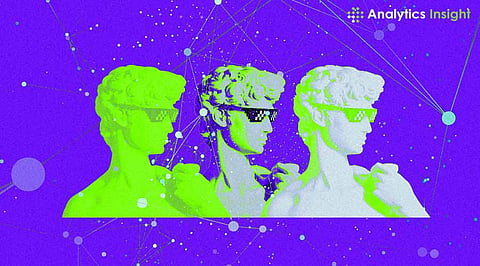

Data science, a transformative force in the digital age, continues to reshape industries by unlocking data's value. As we step into 2025, the field is poised for unprecedented growth, marked by advanced technologies, new challenges, and expanded applications across sectors. Here is an in-depth view of what the future holds for data science and its practitioners.
By 2025, advances in artificial intelligence (AI) and machine learning (ML) will drastically affect how data science methodologies are applied. Generative AI in the form of, say, models such as GPT and others that come in the future will have effective and efficient capabilities in data analysis and predictive modeling. Automated machine learning (AutoML)- focused tools have literally moved to the forefront of allowing organizations to build models and deploy them without having high-end technical expertise.
Quantum computing is still in its inception stage right now and can certainly prove to be a revolutionary technology. It can process complex computations at unprecedented speed and may meet some data challenges that traditional computing has not been able to address, such as optimization problems on a large scale or cryptographic analysis.
Also, with the convergence of edge computing with data science, the transition between real-time analytics becomes possible, mainly in IoT (Internet of Things) environments. Nowadays, devices process and analyze data locally, thereby reducing latency for faster responses and making industries such as healthcare, smart cities, and autonomous vehicles more comfortable.
Data science applications are expanding into areas previously untouched by data-driven insights.
Healthcare: Personalized medicine is at the forefront, with data scientists using patient-specific information to predict diseases and recommend treatments. Real-time analytics in wearable devices is enhancing preventive care.
Finance: Data science is responsible for predictive analytics in market trends, automated trading, and customer relationship management beyond fraud detection.
Climate Science: Predictive models monitor climate change, manage natural resources, and design sustainable solutions.
Entertainment: Enabling hyper-personalized recommendations, immersive content creation, and even AI-generated art.
As data science grows, so does the responsibility to manage ethical and regulatory issues. In 2025, the whole world will enact strict data privacy laws similar to those covered by the General Data Protection Regulation (GDPR), which has been adopted in other regions. This will force companies to maintain the delicate balance between innovation and compliance while ensuring data protection and transparency.
Bias in AI models continues to be a crucial issue. Organizations and governments alike have prioritized fair, accountable, and inclusive algorithms. This has led to the development of explainable AI tools that have sought to aid in eliminating bias, as their technology has made machine learning models transparent.
Indeed, the role of data scientists has undergone a paradigm shift. The professionals are now required to possess a higher level of competency in the technical field and strong communication and business skills to effectuate actionable strategies. The demand for specialized data science roles, such as data ethicists and AI auditors, is rising.
Companies are investing in upskilling people to keep up with technology. Bootcamps, online courses, and partnerships with universities make data science training more accessible, ensuring a steady flow of talent.
Savvy democratization of data science: Currently, low-code or no-code platforms are radically democratizing data science tools to make them operational for non-technical users, hence developing an organization culture in which citizen data scientists dominate.
Financial sustainability analytics: Business sustainable solutions designed with data science, monitoring carbon footprints, and optimizing resource usage have another ground to prove their use.
Collaborative Models using AI: This is an emerging trend in federated learning, which is broadly gaining recognition based on training AI models across decentralized devices without sharing raw data for privacy-concerning applications.
The future of data science in 2025 is both exciting and challenging. As technology advances, data science will play an even greater role in the workings of industries. Solving global problems and innovations in new avenues. But with great power comes great responsibility. The focus on ethics, inclusivity, and sustainable practices will determine how successfully the field navigates the complexities of the data-driven world.
For organizations and professionals, staying ahead in this dynamic field requires embracing change, fostering collaboration, and committing to lifelong learning. The data science journey is far from over—it’s just beginning to unfold.
